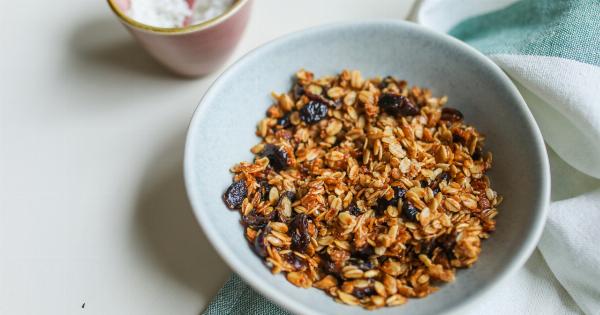Fruit is nature’s delightful and nutritious gift to us. Packed with vitamins, minerals, fiber, and antioxidants, fruits offer a range of health benefits. However, there are several misconceptions surrounding the timing of consuming fruits.
In this article, we will debunk five common timing myths related to fruit consumption and reveal how to get the most out of these vibrant delights.
Myth 1: Eating Fruit on an Empty Stomach is Best
One prevailing myth suggests that eating fruit on an empty stomach ensures optimal nutrient absorption.
While it is true that consuming fruits with an empty stomach may lead to faster digestion, the body’s ability to absorb nutrients remains relatively unaffected. Our digestive system is highly efficient at extracting nutrients regardless of our stomach’s contents. Therefore, feel free to enjoy fruit at any time of the day without worrying about its impact on nutrient absorption.
Myth 2: Avoid Eating Fruit After a Meal
Another misconception suggests that eating fruit immediately after a meal can cause digestive issues.
This myth is based on the belief that different food groups require different digestion times, and consuming them together could lead to fermentation and bloating. However, there is limited scientific evidence to support this claim. In reality, our digestive system can handle a mix of foods.
Therefore, if you crave a sweet treat after a meal, go ahead and enjoy some fruit without worrying about potential digestive issues.
Myth 3: Fruits Should Always be Consumed Alone
There is a popular belief that fruits should always be consumed alone to avoid hindering digestion. Some proponents of this myth claim that when fruits are combined with other foods, they can ferment in the stomach, leading to digestive discomfort.
However, the human body is well-equipped to handle mixed meals. While it’s true that certain fruits, such as citrus fruits, are acidic and may affect the digestion of certain proteins, the overall impact is minimal for most individuals.
In fact, combining fruits with other foods can enhance the overall nutritional value of a meal.
Myth 4: Eating Fruit in the Evening Causes Weight Gain
Many people believe that consuming fruit in the evening can lead to weight gain due to the sugar content. While it is important to be mindful of overall calorie intake, the timing of fruit consumption does not play a significant role in weight gain.
The body processes and metabolizes calories from fruits in the same way, regardless of the time of day. If you enjoy a bowl of fruit as a late-night snack, it is unlikely to directly impact your weight. However, it is still essential to maintain a balanced diet overall.
Myth 5: Avoid Fruit if You Have Diabetes
Some individuals with diabetes worry about consuming fruits due to their natural sugar content. However, fruits can be part of a healthy diet for people with diabetes, as long as they are consumed in moderation and as part of a balanced meal plan.
The fiber present in fruits actually helps slow down the absorption of sugars into the bloodstream, preventing sharp spikes in blood glucose levels. It is important to work with a healthcare professional to determine the appropriate portions and types of fruits to include in a diabetes management plan.
Conclusion: Unraveling the Timing Myths
Fruit is an essential component of a balanced diet, and its consumption offers numerous health benefits. It is crucial to debunk the timing myths surrounding the intake of fruits and embrace the facts.
Eating fruit on an empty stomach, after a meal, or as part of a mixed meal will not negatively impact digestion or nutrient absorption. Furthermore, enjoying fruit in the evening or even if you have diabetes can be a part of a healthy lifestyle, as long as overall calorie intake and portion control are considered.
Incorporate a variety of fruits into your daily routine, savor their flavors, and relish the nutritional benefits they provide.
Whether enjoyed alone or as part of a meal, fruits are nature’s perfect snack, bursting with vitality and goodness for your body and mind.






























